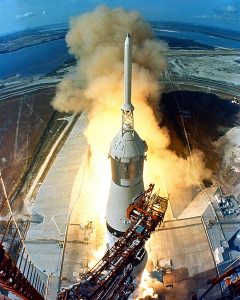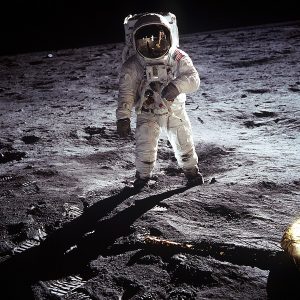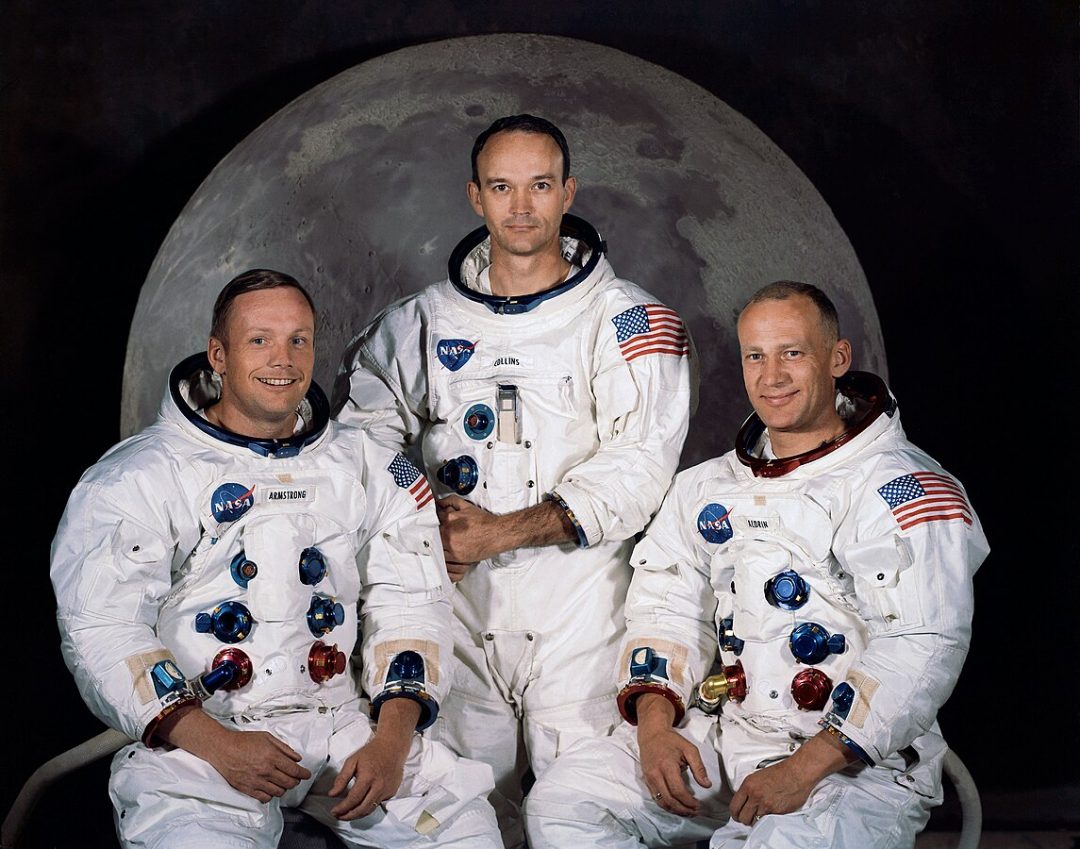Apollo 11:
One of the most famous events in American and global history is Apollo 11, the first mission to
successfully land humans on the moon. While Michael Collins orbited the moon in the
Command Module, Neil Armstrong became the first person to set foot on the moon on July 20,
1969, followed by Buzz Aldrin. In addition to being a technological triumph, this NASA mission
was a significant cultural and political event that represented the height of the space competition
with the Soviet Union and the US leadership in space exploration.
President John F. Kennedy’s 1961 promise that the United States would “land a man on the
Moon and return him safely to the Earth” before the end of the decade served as the inspiration
for the Apollo 11 mission, which marked the completion of a ten-year American endeavor to put
a man on the moon. The Cold War and the fierce space competition with the Soviet Union,
which had launched Sputnik, the first artificial satellite, in 1957, provided a setting for this
ambition. The United States began to worry that it was lagging in technology because of the
Soviet Union’s early achievements in space. The space race had evolved into a stand-in for the
greater ideological conflict between the two superpowers by the time Apollo 11 took off.
NASA (National Aeronautics and Space Administration) launched the Apollo Program with the
intention of fulfilling Kennedy’s mission and showcasing American technological dominance.
Although Apollo 11 wasn’t the first attempt to land on the moon, it was the first to do so
successfully after previous flights cleared the path. The effort, which concluded in the moon
landing on July 20, 1969, required previously unheard-of breakthroughs in science and
engineering. Armstrong’s well-known statement, “That’s one small step for man, one giant leap
for mankind,” emphasized both individual success and the advancement of humanity
underscoring the mission’s global significance.

Neil Armstrong’s initial remarks upon landing on the moon, “That’s one small step for man, one giant leap for mankind,” are a key historical document pertaining to Apollo 11. The significance of the mission is expressed both literally and symbolically in this message, which was aired live to millions of people worldwide. Fundamentally, the phrase encapsulates the event’s dual nature of Armstrong’s personal accomplishment of landing humanity’s first foot on another celestial body and the victory of humanity as a whole. When the source is examined in the context of its history, it becomes clear that it was carefully planned. NASA and Armstrong probably used these words to bring audiences from all over the world together in the midst of Cold War tensions by focusing on peace and progress rather than conflict. The positive mindset of the 1960s, when technical improvement was seen as a means of advancing humankind, is also reflected in the message. The phrase’s relevance has been contested, nevertheless, with some critics drawing attention to the way non-Western narratives and contributions to the space race are left out. Armstrong’s remarks, in spite of these objections, are still seen as a timeless cultural relic that upholds the mythologized idea of American superiority in space exploration while also signifying the aspirations and inventiveness of the Apollo program.
Apollo 11’s accomplishments were the consequence of technology, careful preparation, and remarkable human labor. In addition to advancement in computer science, navigation, and rocket design, the mission built upon the technical successes of previous space missions. Armstrong and Aldrin were transported to the surface by the lunar module of the spaceship, while Collins stayed in orbit with the command module. The Cold War rivalry with the Soviet Union prompted these previously unthinkable technological breakthroughs, which represented American scientific primacy.
According to Roger E. Bilstein’s paper “From Technological Dependence to Technological Leadership,” the US went from being technologically behind other countries to becoming a leader in space exploration. This change had a significant impact on how the world saw American technological innovation as the Apollo mission’s success. The Moon landings greatly increased confidence and pride in the country by proving the United States could gather enormous resource to conquer incredible problems.
As a symbol of the US resolve to win the space race, Apollo 11 was also very political. In
“Space and the American Imagination,” Howard McCurdy notes that space exploration was
presented as a frontier that would demonstrate American value of discovery, creativity, and
overcoming hardship. At a period when the United States was dealing with internal disputes over
civil rights, the Vietnam War, and other social upheavals, the space program was a vehicle of
soft power conveying the image of the American exceptionalism.

In “Perceptions of Apollo,” by Roger Launius, the moon landing is analyzed from the perspective of myth, remembrance and collective memory. Over time, the Moon landing has become a mythologized event that represents American persistence and innovation. Although a great deal of cooperation, training and technological cleverness went into the actual accomplishment, the way it was recalled particularly in the years that followed became a potent cultural narrative that strengthened the American identity as a nation of innovators, conquerors, and pioneers.
The importance of Apollo 11 goes beyond its immediate accomplishment of sending a man to
the moon. It demonstrated the country’s scientific superiority and inventive spirit and signaled the United States victory in the Cold War space race. More significantly, it was a political and cultural representation of American exceptionalism that encouraged generations of Americans and people worldwide to aim high and purse seemingly unachievable goals. The incident has had a long-lasting impact on space exploration as well as people’s imaginations all around the world.
^^^ Make sure to check out this video to understand the overall significance the Moon Landing had for Mankind!
Work Cited:
Roger E. Bilstein, “From Technological Dependence to Technological Leadership: The United
States and the American Space Program,” Technology and Culture 20, no. 4 (1979): 770-784.
Howard E. McCurdy, “Space and the American Imagination,” Public Historian 21, no. 3 (1999):
45-63.
Roger D. Launius, “Perceptions of Apollo: Myth, Nostalgia, Memory or All of the Above?”
Space Policy 16, no. 2 (2000): 81-97.
Wikimedia Commons. (n.d.). Apollo 11 Crew [Photograph]. Retrieved December 2, 2024, from https://commons.wikimedia.org/wiki/File:Apollo_11_Crew.jpg
